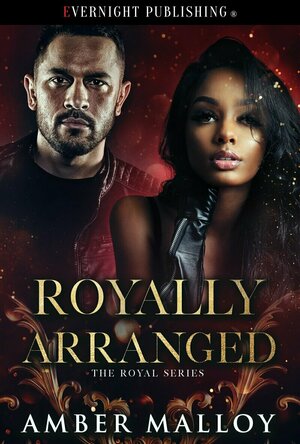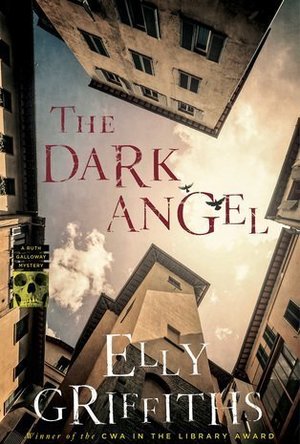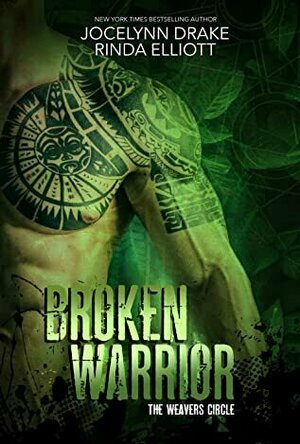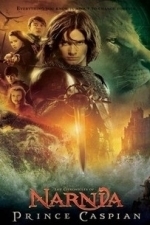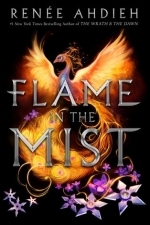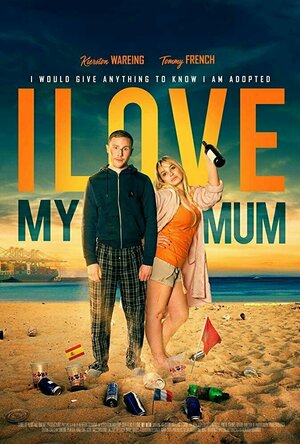Search

Chanelle Hayes: Baring My Heart
Veronica Clark and Chanelle Hayes
Book
Appearing on the eighth series of Big Brother in 2007, Victoria Beckham lookalike Chanelle Hayes...
Debbiereadsbook (1647 KP) rated Royally Arranged (The Royal Series #2) in Books
May 22, 2024
sometimes, you need to see whats coming at ya!
Independent reviewer for Archaeolibrarian, I was gifted my copy of this book.
This is book 2 in the Royal Series. I have not read book one, Royally Screwed and a quick read of that blurb tells me you don't need to read that one before this. Those characters do not appear in this book. It's also the first book I've read of Mallory's. I'll come back to that.
Rafe needs a wife, a temporary arrangement, while his twin brother, his ELDER twin, gets a clean bill of health. A business arrangement which Astoria enters, with a shelf life to the arrangement. At least it started as such.
I liked this. It follows a proven track: an arranged marriage; they have sex (which wasn't part of the arrangement) there is a major fall out, and then a make up, and all is happy in the world. And sometimes you need to see what's coming at ya, like a freight train, and ain't nothin' you can do to stop it. And I LIKED that in this book!
It's steamy in places, but I didn't find it overly heavy on the smexy times. I didn't find it particularly emotional, either. Rafe lost his wife and son, but you don't FEEL that pain from him.
I think that is what I missed the most in the book: emotional connection. Yes, they have smex and do all the things they are supposed to, but I didn't find an EMOTIONAL connection between them. They do say those three little words, but again, I didn't FEEL the love between them.
As I said, my first book by Mallory. I'd like to delve into the backlist of this author to see if I can find that connection. Might just be how the author writes, is all.
So, because I felt that was missing, I gave this book
4 stars
*same worded review will appear elsewhere
This is book 2 in the Royal Series. I have not read book one, Royally Screwed and a quick read of that blurb tells me you don't need to read that one before this. Those characters do not appear in this book. It's also the first book I've read of Mallory's. I'll come back to that.
Rafe needs a wife, a temporary arrangement, while his twin brother, his ELDER twin, gets a clean bill of health. A business arrangement which Astoria enters, with a shelf life to the arrangement. At least it started as such.
I liked this. It follows a proven track: an arranged marriage; they have sex (which wasn't part of the arrangement) there is a major fall out, and then a make up, and all is happy in the world. And sometimes you need to see what's coming at ya, like a freight train, and ain't nothin' you can do to stop it. And I LIKED that in this book!
It's steamy in places, but I didn't find it overly heavy on the smexy times. I didn't find it particularly emotional, either. Rafe lost his wife and son, but you don't FEEL that pain from him.
I think that is what I missed the most in the book: emotional connection. Yes, they have smex and do all the things they are supposed to, but I didn't find an EMOTIONAL connection between them. They do say those three little words, but again, I didn't FEEL the love between them.
As I said, my first book by Mallory. I'd like to delve into the backlist of this author to see if I can find that connection. Might just be how the author writes, is all.
So, because I felt that was missing, I gave this book
4 stars
*same worded review will appear elsewhere
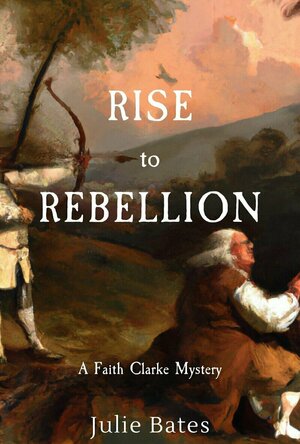
Rise to Rebellion (Faith Clarke #3)
Book
Summer 1776. Different missions call Faith Clarke and Jeremy Butler to Philadelphia, where delegates...
Historical Fiction Mystery Faith Clarke Series

The Reject and the Rebound (Leighton #3)
Book
Sometimes salvation comes from the person you’d least expect. Owen: The day I came home and...
Contemporary MM Romance
Kristy H (1252 KP) rated Girls' Weekend in Books
Feb 13, 2018
Charlotte, Dani, and Meg have been friends for ages-- bonding over motherhood and the issues that accompany it. However, each woman has their own problems and are reluctant to bring them up with their friends. Charlotte, a busy and successful interior designer, has a dentist husband and a loving son, but she feels like her husband, Brett, doesn't even see her anymore. Dani's life appears great -- a caring husband and two kids, but she can't quite shake the empty feelings she has. And Meg is still reeling from losing her young son two years ago; her grief remains, but everyone around her seems to have moved on. When the three women get a chance to go away for a girls' weekend, they jump at the chance, even if involves a little rearranging of schedules. But once there, they make a fateful decision: they aren't coming back home.
When reading it, the premise seems a little farfetched, but the characters in this novel immediately seem very real and the book gives a lot of little details about motherhood that lend it realism (for instance, humming annoying intro music to a children's show at inappropriate times). Each woman is different, but you can relate to a piece of each of them. I found myself liking parts of each and being frustrated with other parts - just like your actual friends.
It's probably true that parts of the book are stereotypical toward men (and fathers) -- painting them as bumbling and clueless toward their wives and children, but sadly, there is some realism to it, too. Plus, as the storyline progresses, you fixate less on this fact and realize there's more to this story than black and white. Honestly, it speaks universally to many women, especially mothers: those seeking answers in life, those feeling guilty for not being happy when life seems perfect on paper, those wondering when life simply became a series of errands. I felt like Achterberg did an excellent job of dealing with and capturing some of the quintessential problems facing the modern mom.
The book is painful to read at times, but only because it's so well-written. Your heart breaks for Meg and all she has been through. The book lags a little in the middle, but really, the women do too, as they try to figure out exactly what they should do. It is fascinating because they are doing what you can't quite imagine pulling off. My mind was racing as I read: I mean, who would really watch your kids for that long? What spouse would be OK with this? Who could leave their kids for that long? And yet, you sort of dream for the time away, envy the women as you read the novel. It's easy to empathize with them, even as you may question some of their motives.
Overall, the book was easy to read and Charlotte, Meg, and Dani were interesting and relatable characters. The book made me think (and highlight many passages). It's a fun read, but also goes deeper, too. Really enjoyed it.
I received an ARC of this book from Netgalley (thank you!); it is available everywhere on 5/3.
When reading it, the premise seems a little farfetched, but the characters in this novel immediately seem very real and the book gives a lot of little details about motherhood that lend it realism (for instance, humming annoying intro music to a children's show at inappropriate times). Each woman is different, but you can relate to a piece of each of them. I found myself liking parts of each and being frustrated with other parts - just like your actual friends.
It's probably true that parts of the book are stereotypical toward men (and fathers) -- painting them as bumbling and clueless toward their wives and children, but sadly, there is some realism to it, too. Plus, as the storyline progresses, you fixate less on this fact and realize there's more to this story than black and white. Honestly, it speaks universally to many women, especially mothers: those seeking answers in life, those feeling guilty for not being happy when life seems perfect on paper, those wondering when life simply became a series of errands. I felt like Achterberg did an excellent job of dealing with and capturing some of the quintessential problems facing the modern mom.
The book is painful to read at times, but only because it's so well-written. Your heart breaks for Meg and all she has been through. The book lags a little in the middle, but really, the women do too, as they try to figure out exactly what they should do. It is fascinating because they are doing what you can't quite imagine pulling off. My mind was racing as I read: I mean, who would really watch your kids for that long? What spouse would be OK with this? Who could leave their kids for that long? And yet, you sort of dream for the time away, envy the women as you read the novel. It's easy to empathize with them, even as you may question some of their motives.
Overall, the book was easy to read and Charlotte, Meg, and Dani were interesting and relatable characters. The book made me think (and highlight many passages). It's a fun read, but also goes deeper, too. Really enjoyed it.
I received an ARC of this book from Netgalley (thank you!); it is available everywhere on 5/3.
Kristy H (1252 KP) rated The Dark Angel in Books
May 15, 2018
Another winning mystery from Griffiths
Ruth is dealing with a lot on the personal front, including the fact that Nelson's wife, Michelle, is pregnant. Ruth and Nelson's daughter, Kate, is six now, and while Michelle knows about Kate, Nelson's older daughters do not. Nelson was very close to leaving Michelle for Ruth, before he found out his wife was pregnant again. So when Ruth is invited to Italy to assist a former friend, Angelo Morelli, in looking at some bones, she is actually a bit excited at the thought of a holiday/work trip. It will give her and Kate a chance to get away. They embark on the trip along with Ruth's friend Shona and her son, Louis. Once there, Ruth realizes how entrenched the people of the Italian village are in the past--including what happened during World War II. Further, Angelo is convinced someone is trying to kill him. Before she knows it, Ruth is immersed in a modern-day murder mystery: something she can't seem to avoid, no matter where she travels.
It's no secret that I love Ruth and Elly Griffiths' series of novels featuring our intelligent, plucky heroine. Despite the fact that I know absolutely nothing about bones, I identify with her (e.g., stepping on a plane with Kate for the first time and feeling nervous flying with her daughter, whose safety "overrides everything else"). Ruth's wit, sarcasm, and sense of humor are always absolutely spot-on, and it's wonderful being back with her and her circle of pals, especially the grumpy yet protective Nelson. The Nelson/Ruth dynamic is its typically complicated yet oddly sweet self, and there's a surprising amount of progress or information regarding the characters' personal lives in this novel.
As mentioned, these books are always just lovely and humorous. The narration style is impeccable and works flawlessly. Each character is so perfectly "them," and I enjoyed that we heard from a lot of characters this time around, even Nelson's elder daughter. Oh, and yes, there's also a great mystery plot thrown in, involving an Italian town, some bones (of course), and a variety of deeply buried secrets. Griffiths introduced us to some new characters with the new locale, and I found the mystery to be interesting and engaging. It was front and center enough to keep us interested, but refreshing to get a little more movement on the characters' personal lives, too.
Overall, another winner from Griffiths. As always, I cannot wait for the next Ruth novel (especially because there is some serious unresolved business by the end of this one!). I think of Ruth, Harry, Kate, and the entire cast as dear friends by now. You can read this as a stand-alone, but as always, I recommend reading the whole series, because it's just so darn good.
A huge thanks to the publisher and Edelweiss for a copy of this novel in return for an unbiased review.
It's no secret that I love Ruth and Elly Griffiths' series of novels featuring our intelligent, plucky heroine. Despite the fact that I know absolutely nothing about bones, I identify with her (e.g., stepping on a plane with Kate for the first time and feeling nervous flying with her daughter, whose safety "overrides everything else"). Ruth's wit, sarcasm, and sense of humor are always absolutely spot-on, and it's wonderful being back with her and her circle of pals, especially the grumpy yet protective Nelson. The Nelson/Ruth dynamic is its typically complicated yet oddly sweet self, and there's a surprising amount of progress or information regarding the characters' personal lives in this novel.
As mentioned, these books are always just lovely and humorous. The narration style is impeccable and works flawlessly. Each character is so perfectly "them," and I enjoyed that we heard from a lot of characters this time around, even Nelson's elder daughter. Oh, and yes, there's also a great mystery plot thrown in, involving an Italian town, some bones (of course), and a variety of deeply buried secrets. Griffiths introduced us to some new characters with the new locale, and I found the mystery to be interesting and engaging. It was front and center enough to keep us interested, but refreshing to get a little more movement on the characters' personal lives, too.
Overall, another winner from Griffiths. As always, I cannot wait for the next Ruth novel (especially because there is some serious unresolved business by the end of this one!). I think of Ruth, Harry, Kate, and the entire cast as dear friends by now. You can read this as a stand-alone, but as always, I recommend reading the whole series, because it's just so darn good.
A huge thanks to the publisher and Edelweiss for a copy of this novel in return for an unbiased review.
Debbiereadsbook (1647 KP) rated Broken Warrior (The Weavers Circle #1) in Books
Apr 27, 2020
This series is gonna be amazing!
Independent reviewer for GAy Romance Reviews, I was gifted my copy of this book.
Running from what, he doesn't know, but Clay needs to run, and run south. He follows his instincts and finds himself in a fight to save the earth from destruction. Dane finds himself fighting his attraction to Clay, even as he fights himself over his guilt at the death of his wife and son. Dane doesn't know whats going on in the house, but he wants to find out, and he knows, deep down, he wants Clay.
So! Different, very different and I really rather loved it!
Clay finds himself at the helm of The Weavers. These are a band of 6 brothers, that come together time and time again to save the earth from destruction by beings from another dimension. And when i say time and time AGAIN, I mean that quite literally. The Weavers have been gathered together many times over the years and they have yet to finally close the rift that bring the beings to earth. Maybe this time will be different but the Goddess who brings Clay to the house doesn't know why they didn't manage to close the rift yet. Her and her sisters are hoping this time they will.
I loved Clay and I loved Dane. I loved Grey and Bear too, another 2 of the brothers who manage to get to the house in this book. I'm assuming they will get their own books at some point. The three Goddesses keep popping in and out, and they are amusing at times, in that they are VERY cryptic in what they are letting these three brothers know, in this book, anyway.
They are also, I think, tired. Having been doing this song and dance for EVER, there comes a time when anyone would say, enough is enough. I *think* this might be the case, although nothing is actually said here, it's just an impression I get.
I loved this book, I really did. Not quite a one sitting, cos, you know, a girl gotta sleep, but very nearly.
Both Clay and Dane have a say, although at first I thought it might just be Clay. You get all their interactions in the beginning, and what I really liked, when I realised Dane would get a say, was that we get all his fighting with himself. We get Clay's fighting with the beings, but it is Dane's fighting with himself, with his guilt and his feelings for his dead wife, and for Clay, that really make this book, for me anyway.
It's sexy, but its equally deadly. The fights are described in some detail, but I liked that.
I really like how this book lays most of it out for you, but I have a feeling there is MUCH we don't know yet. I really look forward to reading future books in this series!
5 very excited for the next book stars
Running from what, he doesn't know, but Clay needs to run, and run south. He follows his instincts and finds himself in a fight to save the earth from destruction. Dane finds himself fighting his attraction to Clay, even as he fights himself over his guilt at the death of his wife and son. Dane doesn't know whats going on in the house, but he wants to find out, and he knows, deep down, he wants Clay.
So! Different, very different and I really rather loved it!
Clay finds himself at the helm of The Weavers. These are a band of 6 brothers, that come together time and time again to save the earth from destruction by beings from another dimension. And when i say time and time AGAIN, I mean that quite literally. The Weavers have been gathered together many times over the years and they have yet to finally close the rift that bring the beings to earth. Maybe this time will be different but the Goddess who brings Clay to the house doesn't know why they didn't manage to close the rift yet. Her and her sisters are hoping this time they will.
I loved Clay and I loved Dane. I loved Grey and Bear too, another 2 of the brothers who manage to get to the house in this book. I'm assuming they will get their own books at some point. The three Goddesses keep popping in and out, and they are amusing at times, in that they are VERY cryptic in what they are letting these three brothers know, in this book, anyway.
They are also, I think, tired. Having been doing this song and dance for EVER, there comes a time when anyone would say, enough is enough. I *think* this might be the case, although nothing is actually said here, it's just an impression I get.
I loved this book, I really did. Not quite a one sitting, cos, you know, a girl gotta sleep, but very nearly.
Both Clay and Dane have a say, although at first I thought it might just be Clay. You get all their interactions in the beginning, and what I really liked, when I realised Dane would get a say, was that we get all his fighting with himself. We get Clay's fighting with the beings, but it is Dane's fighting with himself, with his guilt and his feelings for his dead wife, and for Clay, that really make this book, for me anyway.
It's sexy, but its equally deadly. The fights are described in some detail, but I liked that.
I really like how this book lays most of it out for you, but I have a feeling there is MUCH we don't know yet. I really look forward to reading future books in this series!
5 very excited for the next book stars
Gareth von Kallenbach (980 KP) rated The Chronicles of Narnia: Prince Caspian (2008) in Movies
Aug 14, 2019
Following the grand fable of “The Lion The Witch and The Wardrobe” is not an easy task as the cinematical version of the timeless classic by C.S. Lewis was a worldwide box office smash. Thankfully Director Andrew Adamson (Who co-wrote the script), still has plenty of magic left from helming the first film in the series.
The film opens roughly a year after the events of the first film and the children have returned to England and have returned to their studies in war torn England. The Children Peter (William Moseley), Edmund (Skandar Keynes), Susan (Anna Popplewell), and Lucy (Georgie Henley), struggle with being children again as the memories of their years ruling Narnia and their battle with the White Witch is still fresh in their memories.
Back in Narnia, several centuries have passed, and an invading army has conquered Narnia and vanquished the creatures of the land to the woods, while they reign supreme over the land. The situation takes a turn for the worse when the evil Prince Miraz (Sergio Castellitto), learns that his wife has given birth to a son.
With a future heir in place, Prince Caspian (Ben Barnes), the rightful heir to the throne, is targeted for death by his power mad uncle, and must flee into the woods for his life. In short order, he meets some of the local creatures, and with his Uncle’s troops in hot pursuit, he summons the former rulers of Narnia via a magical horn.
Delighted to be back in Narnia, Peter and his siblings soon learn things are not as they were when they last visited and take a turn towards the unexpected when they are told that the magical Lion Aslan (Liam Neeson), has long since deserted the creatures of Narnia and left them at the mercy of the invading hordes. Lucy does not believe this and insists that she has seen and heard from Aslan since her return but her claims are met with skepticism by her older siblings.
In time the children meet up with Caspian and the former rulers of the land must help the young Prince bring in a new age of peace and prosperity for all the races of the land, and in doing so, must face up to a vast army that is gathering against them as well as some old enemies long forgotten.
What follows is a grand adventure that pits good against evil in one of the more enjoyable fantasy adventure films in recent years.
The film takes a bit to get started, but thanks to the engaging cast and great visuals of the film, as well as a surprising amount of humor, viewers should find plenty to like as the film builds up to the battle sequences.
While not state of the art, the FX in the film are solid and enhances the story and characters rather than overshadow them. The film does take some liberties with the book, most notably adding more action to the story, but it is nothing that would be considered detracting to the overall product. Parents may want to note that there is a lot of violence in the film and that death and mayhem are constant throughout.
The cast is enjoyable and really do well with parts that do require alot of physicality to them. The chemistry amongst the leads is good but it is the solid supporting work of Peter Dinklage as Trumpkin that really allows the cast to shine in his scenes with them.
Much was made in the last film of the strong Christian themes that C.S. Lewis filled his Narnia books with. The theme of Christianity is still strong in the film, but it is not as pronounced as it was in the past film, save for segments near the last third of the film.
Despite the nearly 2hrs and 20 minute run time the film easily kept my attention and should delight fans who likely are already waiting for the next film in the series, “The Voyage of The Dawn Tredder” to arrive.
The film opens roughly a year after the events of the first film and the children have returned to England and have returned to their studies in war torn England. The Children Peter (William Moseley), Edmund (Skandar Keynes), Susan (Anna Popplewell), and Lucy (Georgie Henley), struggle with being children again as the memories of their years ruling Narnia and their battle with the White Witch is still fresh in their memories.
Back in Narnia, several centuries have passed, and an invading army has conquered Narnia and vanquished the creatures of the land to the woods, while they reign supreme over the land. The situation takes a turn for the worse when the evil Prince Miraz (Sergio Castellitto), learns that his wife has given birth to a son.
With a future heir in place, Prince Caspian (Ben Barnes), the rightful heir to the throne, is targeted for death by his power mad uncle, and must flee into the woods for his life. In short order, he meets some of the local creatures, and with his Uncle’s troops in hot pursuit, he summons the former rulers of Narnia via a magical horn.
Delighted to be back in Narnia, Peter and his siblings soon learn things are not as they were when they last visited and take a turn towards the unexpected when they are told that the magical Lion Aslan (Liam Neeson), has long since deserted the creatures of Narnia and left them at the mercy of the invading hordes. Lucy does not believe this and insists that she has seen and heard from Aslan since her return but her claims are met with skepticism by her older siblings.
In time the children meet up with Caspian and the former rulers of the land must help the young Prince bring in a new age of peace and prosperity for all the races of the land, and in doing so, must face up to a vast army that is gathering against them as well as some old enemies long forgotten.
What follows is a grand adventure that pits good against evil in one of the more enjoyable fantasy adventure films in recent years.
The film takes a bit to get started, but thanks to the engaging cast and great visuals of the film, as well as a surprising amount of humor, viewers should find plenty to like as the film builds up to the battle sequences.
While not state of the art, the FX in the film are solid and enhances the story and characters rather than overshadow them. The film does take some liberties with the book, most notably adding more action to the story, but it is nothing that would be considered detracting to the overall product. Parents may want to note that there is a lot of violence in the film and that death and mayhem are constant throughout.
The cast is enjoyable and really do well with parts that do require alot of physicality to them. The chemistry amongst the leads is good but it is the solid supporting work of Peter Dinklage as Trumpkin that really allows the cast to shine in his scenes with them.
Much was made in the last film of the strong Christian themes that C.S. Lewis filled his Narnia books with. The theme of Christianity is still strong in the film, but it is not as pronounced as it was in the past film, save for segments near the last third of the film.
Despite the nearly 2hrs and 20 minute run time the film easily kept my attention and should delight fans who likely are already waiting for the next film in the series, “The Voyage of The Dawn Tredder” to arrive.
Dana (24 KP) rated Flame in the Mist in Books
Sep 8, 2017
Enjoyed from beginning to end
Overall, I freaking loved this novel. It's set in feudal Japan and follows a young woman as she is being married off the the emperor's second son. Mariko is a badass, There's no other way to put it. She will take no shit from others which gets her into a lot of trouble. She's also flawed in that aspect too; she's so blinded by her stubbornness to see the actual world around her sometimes. But she's not the only character who gets depth. Her brother, who we see in almost alternating viewpoints in the story, is a character filled with flaws and pride. But that's not all. Several characters get fleshed out back stories (some more in depth than others) and seeing them all grow was a delight to read.
Let's move on to the rich details of the setting. Feudal Japan can be tricky and Renee Ahdieh did it so much justice. It's described so well, I could easily put myself into Mariko's shoes and lose myself in the story. It's so nice to have that level of detail paid attention to in novels set in a different time and place.
And that romance.... oh boy, it was steamy. I must admit my weakness for slow burn romances (especially ones that are hate-to-love) and this did not disappoint. It was a bit awkward; at first I wasn't sure who she was going to get together with, but when it hit it's stride, I was in love. I really don't want to give much away, but it was fantastic to read and fall in love with them.
I am eagerly awaiting the next in the series!
Let's move on to the rich details of the setting. Feudal Japan can be tricky and Renee Ahdieh did it so much justice. It's described so well, I could easily put myself into Mariko's shoes and lose myself in the story. It's so nice to have that level of detail paid attention to in novels set in a different time and place.
And that romance.... oh boy, it was steamy. I must admit my weakness for slow burn romances (especially ones that are hate-to-love) and this did not disappoint. It was a bit awkward; at first I wasn't sure who she was going to get together with, but when it hit it's stride, I was in love. I really don't want to give much away, but it was fantastic to read and fall in love with them.
I am eagerly awaiting the next in the series!
365Flicks (235 KP) rated I Love My Mum (2018) in Movies
Oct 31, 2019 (Updated Oct 31, 2019)
I feel this could be an instant cult favourite.
Prepare yourself Film Fans, for what could be the best British road trip comedy you will have seen in a long time. A bold statement I know however this Low budget Brit comedy punches way above its weight in almost every aspect and lands an absolute knockout for its viewers.
Often movies like this can just seem like a series of randomly put together scenarios and yes this movie could easily run the risk of being overly silly but I felt like through some spot-on casting, a great script and masterful directing on the part of Alberto Sciamma this movie expertly avoids becoming one of those movies.
Tommy French as Ron is somewhat of a revelation, I will hold my hands up and say that I personally don't think I have seen this actor before and didn't really expect too much but boy did he impress me, the comedic delivery of a lot of his dialogue is superb and I found him completely believable as a sort of fish out of water put upon son who has just about had enough but would still do just about anything for his mum... Including an epic Karaoke jam. Of course French does have a superb Co-star to bounce off in Kierston Wareing who just nails this role, absolutely nails it. At first I was a little put off by the character but 8-10 minutes into the movie I fell in love with Olga and that love only grew. French and Wareing are a match made in heaven.
Often movies like this can just seem like a series of randomly put together scenarios and yes this movie could easily run the risk of being overly silly but I felt like through some spot-on casting, a great script and masterful directing on the part of Alberto Sciamma this movie expertly avoids becoming one of those movies.
Tommy French as Ron is somewhat of a revelation, I will hold my hands up and say that I personally don't think I have seen this actor before and didn't really expect too much but boy did he impress me, the comedic delivery of a lot of his dialogue is superb and I found him completely believable as a sort of fish out of water put upon son who has just about had enough but would still do just about anything for his mum... Including an epic Karaoke jam. Of course French does have a superb Co-star to bounce off in Kierston Wareing who just nails this role, absolutely nails it. At first I was a little put off by the character but 8-10 minutes into the movie I fell in love with Olga and that love only grew. French and Wareing are a match made in heaven.
